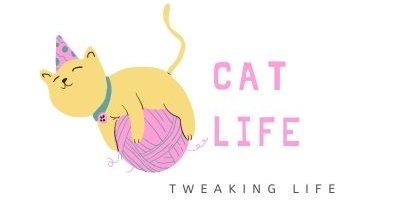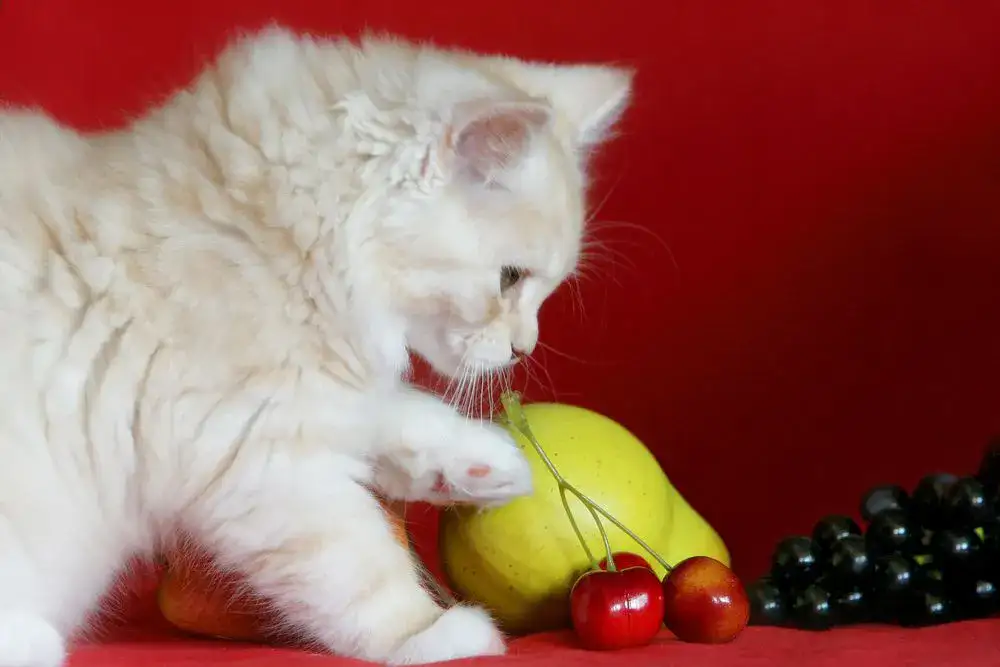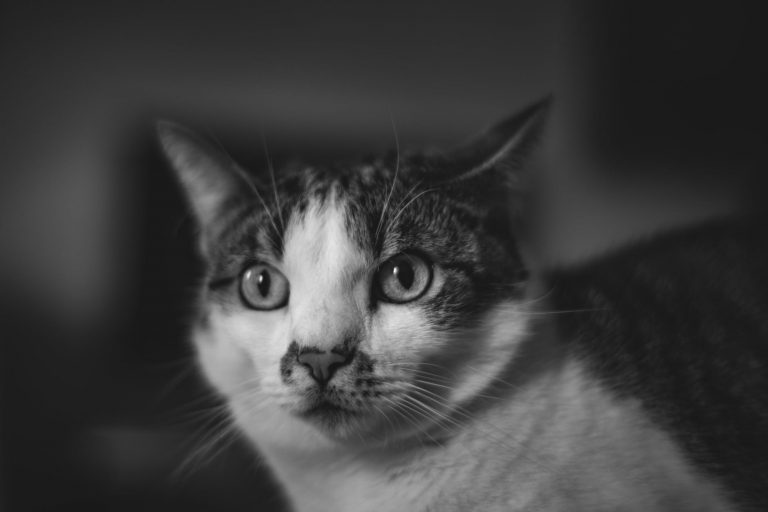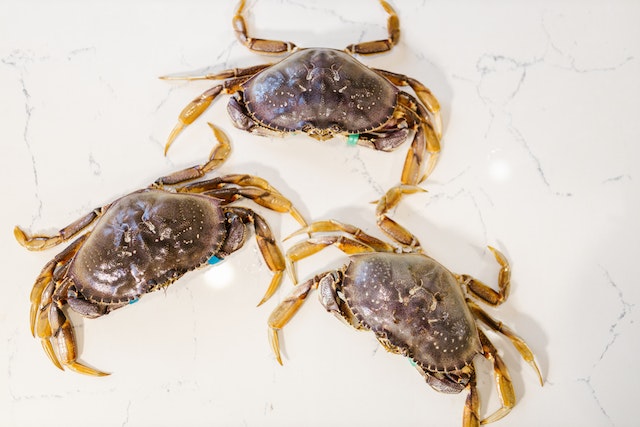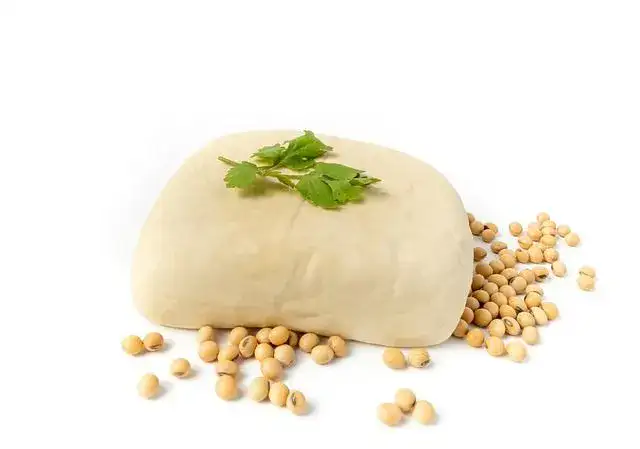Cat Vegan Diet: Benefits and Feeding Tips 2024
There have been some heated debates online on whether cats should or should not eat vegan and vegetarian diets.
Felines should not fully eat a cat vegan diet. Cats are carnivores and need to get their nutrients from meat. This stems from their ancestors in the wild who evolved to only feed on animal proteins.
In the rest of this article, I’ll go through the various benefits and risks of a vegan diet so you can be able to make an informed choice.
Can Cats go on a Cat Vegan Diet?
Cats can eat a vegan diet. However, there are some caveats. Some nutrients that cats need can only be found in animal products. It’s important to consult your vet before switching to a plant-based diet.
With that said, there are several vegan foods that cats can feast on. For example vegetables. Some safe veggies for your kitto include asparagus, broccoli, and cauliflower.

I’ve prepared an article on how to introduce veggies to your kitto as well as dangerous ones. To find out more on this topic, you can check out this article on 21 vegetables that your cat can eat.
Fruits are also an excellent addition to your catto’s vegan meals. They come packed with lots of nutrients. Not only that. Fruits are a clever way to up your kitto’s fluid intake considering some don’t like water.
Some safe fruits for your catto include apples, bananas, and watermelons. If you’d like to know more fruits safe for your catto, check out my post on fruits cats can eat.

What Are the Benefits of a Vegan for Cats?
1. Vegan Cats Are Healthier than Their Meat-eating Counterparts
According to a study done by the Ontario Veterinary College, cats fed plant-based diets tend to thrive. Pets on a vegan diet have better body condition scores and are overall in better health. The study also found that plant-based diets are not harmful to cats.
2. Vegan Cats Have a Lower Risk of Developing Certain Health Problems
The peer-reviewed study also acknowledged that vegan cats have a lower chance of becoming obese or developing the hepatic disease. This is the leading cause of felines developing liver problems.
Now while vets can manage a liver issue, cats tend to suffer and some do not make it.
According to the study, 81% of vegan cats were reported to be healthy compared to 65% fed meat-based diets. 68% of vegan cats also recorded an ideal body condition score compared to 54% of non-vegans.
3. Vegan Cats Are Less Likely to Be Obese
Vegan cats are less likely to be obese because they are fed a plant-based diet. Plant-based diets tend to be low in fat reducing the chances of obesity.
4. Vegan Cats Have a Lower Environmental Impact than Their Meat-eating Counterparts
Cats are the biggest threat to birds. According to the American Bird Conservancy, cats are the number 1 threat to birds in the United States and Canada.
Even a well-fed kitto will strive to hunt down a bird because of their predatory nature.
Is Vegan Cat Food Nutritionally Adequate?
Vegan cat food is complete and nutritionally adequate, but it may not provide all of the nutrients your cat requires. Cats require 11 amino acids not typically found in plant-based foods.
Vegan cat food must contain taurine and arginine, which are both easily synthesized from plant-based sources.
How Do I Know If My Cat Is Getting Enough Nutrients on a Vegan Diet?
If your cat is not getting enough nutrients, you may observe signs such as:
- Hairloss
- Hair changing color
- Losing weight
- Dry and brittle hair coat
- Lethargy
How Do I Know If My Cat Is Getting Enough Nutrients on a Vegan Diet?
1. Plant-based Proteins
Some plant-based proteins that can be used in vegan cat food include quinoa and lentils. Quinoa is a protein source for cats that also comes with some caveats.
I prepared a post on this explaining some possible issues that may arise. So, if you’re considering feeding your kitto some, make sure to check out this post on whether quinoa is good for cats.

I personally feed my cat lentils and she is in love with them, even though she’s not a vegan.
2. Plant-based Fats
Plant-based fats are important in vegan cat food because cats lack the ability to convert plant-based omega-3s into their preformed form.
Felines need high amounts of arachidonic acid, which is only found in animal fat. Vegan foods must contain a synthetic form of arachidonic acid in order to meet cats’ needs.
3. Nutritional Supplements
It is essential that vegan cats get the right vitamins and minerals in their diet, and vegan cat food usually includes these nutrients.
However, it is important to note that vegan cats may need a supplement of Vitamin D3 to ensure they are getting the right amount.
4. Enzymes
Enzymes are protein molecules that function as catalysts for chemical reactions in the body. They are necessary for vegan cat food because plant-based fats are more difficult to digest than animal-based fats. Enzymes help break down plant-based fats so that the body can absorb them.
5. Vitamins and Minerals
Cats need preformed vitamin A from animal flesh to function properly. They cannot biosynthesize vitamin A and must get it from their diet.
Taurine is an essential amino acid that cats need but humans can usually get it from plant-based sources. Vegan cats need taurine and vitamin D to stay healthy.
Taurine deficiency in pets can lead to a dangerous condition called dilated cardiomyopathy, while a lack of vitamin D can lead to a number of health problems. Cats and dogs must get their vitamins and minerals from their diet, and taurine is most common in animal-based sources.
Vegan cats need to make sure they are getting all the nutrients they need, which may not be available from plant-based sources.

6. Anti-inflammatory Agents
It is important for vegan cat food to contain anti-inflammatory agents in order to reduce inflammation and promote joint and brain development.
Cats need preformed EPA and DHA to function properly, so their diet must be supplemented with these essential nutrients.
7. Probiotics
Probiotics are important in vegan cat food to help maintain gut health and prevent digestive issues. Probiotics can also increase the absorption of nutrients from plant-based diets, which is beneficial for cats on a vegan diet.
What Are Some Tips for Feeding a Cat a Vegan Diet?
1. Feed Your Cat a High-quality Vegan Diet That Meets Their Nutritional Needs
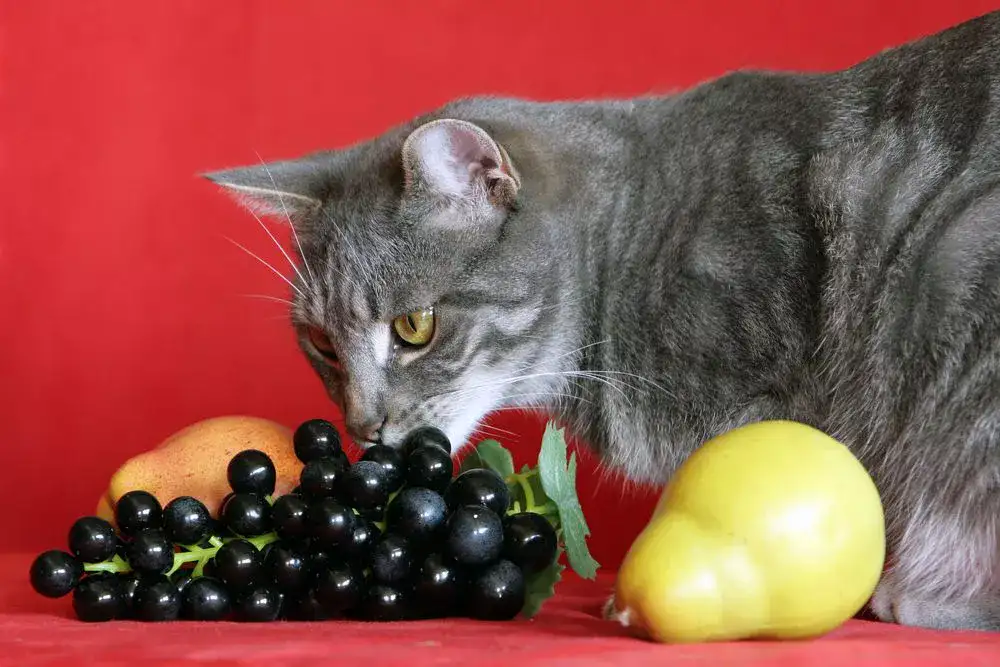
The best way to ensure that a vegan cat diet is nutritious and meets their needs is to make sure the food is properly manufactured. Each cat’s nutritional needs is different and you should consult your vet on this.
2. Make Sure to Include Enough Water and Fresh Food
Water is life and this goes for cats too. Now, some cats are fussy water drinkers, so we have wet cat food. Regardless of whether your kitto is having a vegan diet or not, they should take enough water.
Aim for 1/2 a cup of water per 5 pounds of your catto’s weight. Water keeps them hydrated and prevents issues with their urinary tract.
3. Consult with a Veterinarian to Make Sure Your Cat Is Eating a Balanced Vegan Diet
When feeding a vegan diet to cats, it is important to consult with a veterinarian in order to be informed of any potential risks. If a cat’s health begins to deteriorate despite following all the advice in this article, then something is definitely up and you should discontinue as you seek vet advice..

4. Feed Your Cat a Variety of Food to Ensure They Get All the Nutrients They Need
It is important to feed a cat a variety of food to ensure they receive all the nutrients they need for good health. A healthy diet for a cat includes up to 40% protein and should be supplemented with vitamins and minerals essential to a cat’s health.
Cat food typically includes vegetables and grains to bulk them out, as well as extra fiber. Grass can also help with digestion and hairballs.
Now that we’re on the topic of grass, did you know that grass is actually very helpful to your kitto? Check out this post on why your indoor cat needs to eat grass.
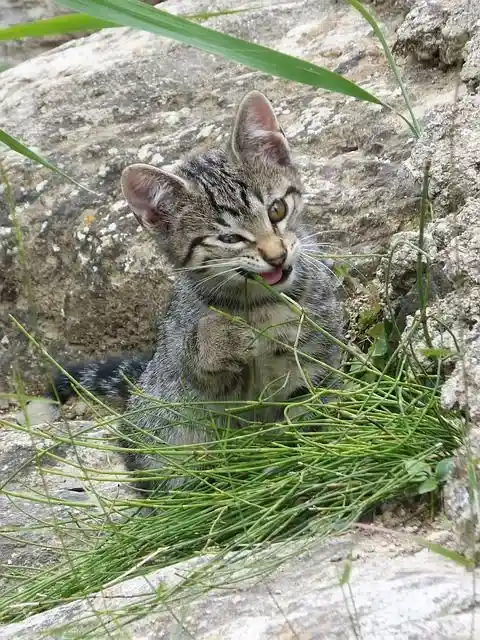
4. Be Aware of Any Potential Health Risks Associated with a Vegan Diet
It’s very important to be aware that your catto may experience some health problems if you practice a vegan diet incorrectly. These risks may include malnutrition and possible health problems caused by not consuming enough essential nutrients.
5. Monitor Your Cat’s Health Closely to Make Sure They Are Enjoying Their Vegan Diet
It is important to monitor your cat’s health when they are on a vegan diet as their urine pH levels may be different from those of cats eating a regular diet.
Finding Food Your Cat Will Like
Preparing Vegan Cat Food from Scratch
It is notoriously difficult to make vegan cat food from scratch, so it is important to be persistent and try a few recipes before settling on one that your cat likes.
You can buy vegan cat food supplements online called VegeCat. (Not an affiliate link)
The Cost Savings of Homemade Vegan Cat Food
You can save a lot of money by making your own vegan cat food, as commercial brands can be up to ten times more expensive. Making your own food will require dedication and time, but it can be just as effective as store-bought brands.
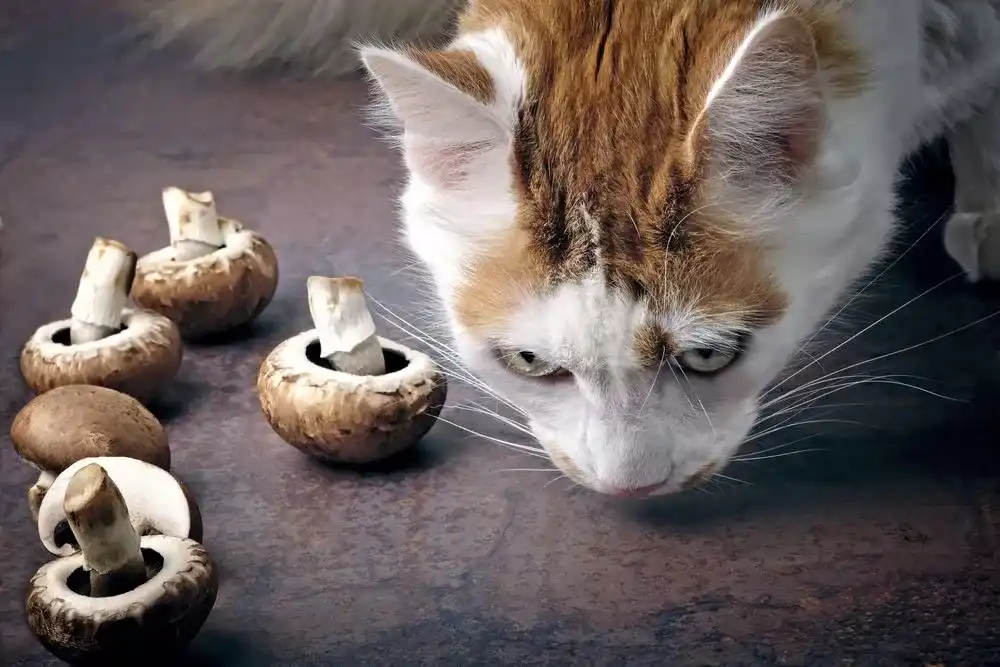
Coaxing Your Cat to Eat
The cats might need to be coaxed to eat because they are carnivores and need meat to survive. If the cats are still not interested in the food, then the owner can stick to feeding them meat and commercial cat food.
Are There Any Risks Associated With Feeding a Cat a Vegan Diet?
The risks associated with feeding a cat a vegan diet include bladder stones, inflammation, and incontinence.
What If I Introduce Vegan Food to a Kitten—will They Adapt?
It is best to gradually introduce a vegan diet to kittens. Although vegan food is suitable for some dogs and cats, it is not for every animal. If any problems arise, try a different recipe or brand.
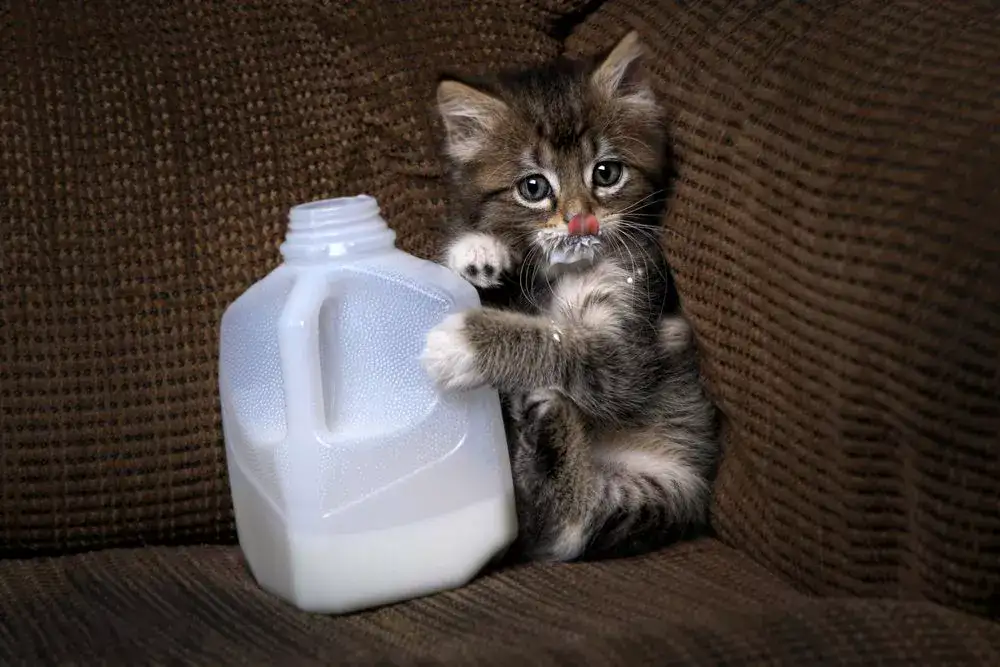
Veterinary Concerns for Vegan Cats
Collecting Urine Samples
To collect a urine sample from a vegan cat, you must first test the cat’s urine to determine if it is too alkaline or too acidic. If the urine is too alkaline, you can add acidifiers to the cat’s diet. However, if the urine is too acidic, you may need to consider adding foods that will lower the pH. You must test your cat’s urine acidity every six months.
The Importance of Urine Tests
Urine tests are essential for vegan cats because they help to monitor the level of magnesium and urine alkalinity in the diet. Too much magnesium or urine alkalinity can lead to the formation of struvite stones, which can cause serious urinary problems.

What to Do if Urine Tests Reveal Problems
If your cat’s urine tests reveal problems, you should provide them with two sources of water and wet food. You should also keep an eye on your cat’s litter box behavior and bring them to the vet if you notice signs of urinary tract blockage.

Top 8 Reasons Why Cats Scratch Their Litter Box
Ongoing Efforts to Protect Your Cat’s Health
It is important for vegan cat owners to be aware of potential health concerns for their cats. Cats on a vegan diet may face a number of health risks that their non-vegan cat counterparts don’t.
If your veterinarian isn’t informed of your cat’s diet, they won’t be able to properly care for your cat and monitor their health.
Communicating Honestly With Your Veterinarian
It is important for cat owners to communicate honestly with their veterinarians about their cats’ vegan diets in order to ensure that the cats are receiving the best possible care.
Not all vegan diets are safe for cats, and disclosing the diet to a veterinarian will allow them to provide the best care possible.

But Then Why Do Vegan and Vegetarian Cat Food Exist?
Vegan and vegetarian cat foods exist because some people believe it’s the best way to care for their cats. They believe that this type of food is healthier for them and that it is the best way to care for the planet.
FAQs
How Long Can Cats Live on a Vegan Diet?
Cats can live on a vegan diet for a long time, and many cats do well on this type of diet. However, it is important to take care when switching your cat to a vegan diet, as there are several factors that need to be considered in order to ensure that the diet is nutritionally balanced and enjoyable for your cat.
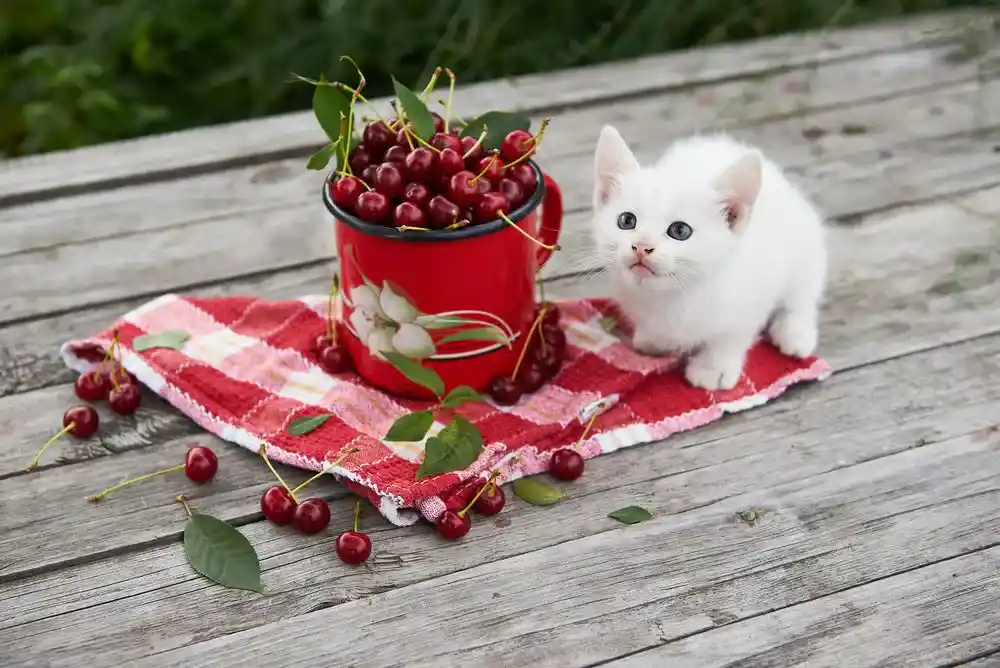
Do Vegan Cats Live Long?
Vegan cats live just as much as cats on a meat-based diet. As long as the vegan diet is well balanced with all the proper nutrients, then it is healthy for a cat.
Will a Vegan Diet Help My Cat Lose Weight?
A vegan diet will help your cat lose weight. Calories in a plant-based tend to be lower making it easy to lose weight. The meals are also low in fat and packed with dietary fiber necessary for proper food digestion and stool passing.
Is a Vegan Diet Safe for Kittens?
It is not recommended to feed kittens a vegan diet, as it may cause them to miss out on important nutrients necessary for their growth and development.
Cats require animal-based proteins to support muscle growth and healthy weight gain, and sudden changes in their diet may lead to problems.
My Cat Has Been on a Vegan Diet for a While, but Now She’s Sick. What Should I Do?
If your cat is sick after being on a vegan diet, you should take them to the veterinarian. The veterinarian will be able to check for early signs of trouble and ensure that your cat is getting the appropriate nutrients.
I’m Thinking of Switching My Cat to a Vegan Diet. What Do I Need to Know?
Switching a cat to a vegan diet may be done for health reasons, as vegan cat food is often seen as cleaner and healthier than regular food. However, it can be challenging to find one that your cat enjoys.
Additionally, switching to a vegan diet requires careful planning and communication with your veterinarian. Vegan cats face a number of health risks that must be monitored, so keeping your veterinarian in the dark about your cat’s diet is not recommended.
I’m a Vegan and I Want to Get a Cat. What Do I Need to Know?
Vegans must take care to find food specifically designed for vegan cats, as they require animal-based protein in their diet which is difficult to find in vegan alternatives. Cats may be resistant to change and unwilling to try new food, so it is important that their veterinarian is informed of their diet.
Vegan cats may face a number of health risks that non-vegan cats do not, so regular checkups are essential.
Can Cats Be Vegetarians?
Cats cannot be vegetarian or vegan. If you want to feed your cat a vegetarian or vegan diet, you must first consider the risks involved. Felines prefer their food based on smell, and will not eat a vegetarian diet if it does not appeal to them taste-wise.
Cats may have a hard time warming up to vegetarian food because it doesn’t smell like meat.
Some meat-free food brands use additives to make their products more appealing to cats, which can be harmful. However, cats will eventually evolve to be able to digest vegetarian food without any problems.
